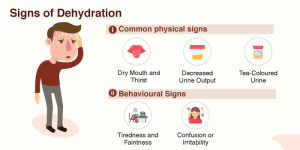
As we become more aware of the importance of mental health, the role of nutrition in maintaining psychological well-being is gaining attention. Research has shown that the food we eat can have a significant impact on our mood, energy levels, and overall mental health.
The Gut-Brain Connection
Our gut is often referred to as our “second brain” because of the strong connection between the two. The gut is home to trillions of bacteria that play a crucial role in regulating our mood and emotions. Studies have shown that a healthy gut microbiome can help alleviate symptoms of anxiety and depression.
Consuming a diet high in processed foods, sugar, and artificial ingredients can disrupt the balance of bacteria in our gut, leading to inflammation and negative effects on our mental health. On the other hand, a diet rich in fruits, vegetables, whole grains, and probiotic-rich foods can promote a healthy gut and improve mental well-being.
The Role of Nutrients in Mental Health
Specific nutrients have been found to have a direct impact on mental health. For example, omega-3 fatty acids found in fatty fish, flaxseeds, and walnuts have been linked to a lower risk of depression and anxiety. Magnesium, found in nuts, seeds, and leafy greens, is another nutrient that plays a key role in regulating mood and reducing anxiety.
Vitamins such as B vitamins, particularly folate and B12, are essential for maintaining a healthy nervous system and are important for managing stress and anxiety. Zinc, iron, and vitamin D are other nutrients that have been linked to improved mental health and well-being.
The Impact of Sugar and Caffeine
While certain nutrients can have a positive impact on mental health, others can have a negative effect. Consuming large amounts of sugar and caffeine can lead to spikes and crashes in blood sugar levels, which can contribute to mood swings, irritability, and anxiety.
Caffeine, while providing a temporary energy boost, can also increase feelings of anxiety and interfere with sleep quality. Limiting the intake of sugar and caffeine and opting for healthier alternatives can help maintain stable energy levels and promote better mental health.
Creating a Balanced Diet for Mental Health
Creating a balanced diet that supports mental health and reduces anxiety involves focusing on whole, nutrient-dense foods. Incorporating plenty of fruits, vegetables, whole grains, lean proteins, and healthy fats into your diet can help provide the necessary nutrients for optimal mental well-being.
In addition to focusing on nutrient-rich foods, it’s important to stay hydrated, as dehydration can affect mood and cognitive function. Limiting the intake of processed foods, sugar, and caffeine, and prioritizing whole foods can provide the foundation for better mental health.
Conclusion
Overall, the connection between nutrition and mental health is a complex and multifaceted one. By paying attention to the foods we eat and making positive changes to our diet, we can support our mental well-being and reduce symptoms of anxiety and depression.
Remember that everyone is different, and what works for one person may not work for another. It’s essential to listen to your body, experiment with different foods, and seek support from healthcare professionals if needed to find the best dietary plan for your mental health.

